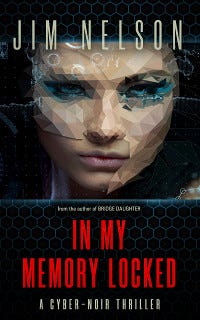I’ve argued before that the brochure web site should be considered the ground floor for an author’s presence on the web, the lowest bar to cross. Anything less is not going to do much work for the aspiring writer (and aren’t almost all writers aspiring to something more?) Most of all, it’s not terribly hard to build one.
What I call “the soapbox web site” takes the brochure site and builds upon its foundation. It’s a way for a writer to put some of their own personality out there for readers. Social media is often good enough for that, but—crazy as it sounds—some ideas simply aren’t meant to be expressed in 280 characters or less.
The soapbox
The soapbox web site usually takes the form of a blog: semi-regular postings from the writer on whatever topic strikes their fancy.
It’s probably assumed that a writer will blog mostly, if not exclusively, about their own work. Certainly I’ve seen writer blogs where that was the case. The problem with this approach is that it can come across as incessant self-promotion. Also, a writer blogging endlessly about their own books will, at some point, give away so much of those books that there’s little reason for the reader to read them. And—let’s face it—there’s only so many interesting things a writer can say about their own books. B. Traven said, “The creative person should therefore have no other biography than his works.” That’s a pretty succinct warning against blogging about one’s own books.
Let me walk back one of the above points. Self-promotion is a reality of the modern world. The days of the smoky, literary genius secluding himself in his enclave while agents and editors talk up his work to magazine critics is, bluntly, a thing of the past. Even writers bagging seven-figure publishing contracts are expected to maintain a healthy social media presence and to make themselves available for interviews and AMA’s (“ask me anything”). That may sound glamorous—but it’s also self-promotion. That said, I still suggest writing a measured amount about one’s work rather than run a fire hose blog about how damn great your books are.
Another approach some writers use is to blog about topics that concern them, or are tangential to their work. For example, one of my early short stories is about an obituarist in the winter of his life. Because of that, I keep my eyes open for stories about obituary writers, strange obituaries, and so on, as a topic for my blog.
Usually, though, blogging writers gravitate to politically-charged subjects, and that certainly is one way to keep your readers coming back for more. Sharp and divisive political prose will attract eyeballs. Two and a half decades of year-over-year growth of the Internet has proven that.
When I built my web site, I struck a different approach. I focus on writing about subjects that inspire me, including reviews of books and film I admire—topics I think other avid readers might find worthwhile.
Mostly, though, I avoid politics and overly negative reviews (although I lapse now and then). This is a conscious decision on my part. A lone writer blogging about politics today is like selling bottled breeze in the eye of a hurricane. Rather than toss my small voice into the din of a massive fray, I decided to focus on topics that are important to the kind of readers I hope to attract. I also wanted to avoid the ranty, angry style of blogging common today. I’d done the ranty thing before—I didn’t need to do it again.
So, does this softer approach get eyeballs? It turns out, yes, it does. My web site attracts about 2,000 views per month, which is not enormous, but not bad considering it’s only me running it. I do almost zero promotion of it, other than list it on my social media profiles. When I post a new blog entry, sometimes I’ll link to it on Twitter and Facebook, but otherwise, that’s it. Those two thousand views are almost entirely from Google searches and the handful of followers I’ve attracted over the years.
Does it sell books? Not an appreciable number. I don’t do a hard-sell when a reader reaches my web site, no pop-ups or blockers which require them to click through to Amazon, or garbage like that. My books are listed down one side of the page (like advertisements). Occasionally I see a click-through from my site to Amazon. Correlating those clicks to Amazon sales is pretty difficult, but even if that person downloads a sample chapter to their Kindle, I count that as a success.
The argument against
That’s how I use my soapbox web site. Is it the approach everyone should use?
No. I enjoy writing about books and film. It motivates me to keep reading and watching, and it forces me to understand what it is about those books and movies that drive my interest. This energy is redirected back into my own writing, in various interesting ways.
But there’s another line of thought, which goes something like this: If you’re not working on your next book, you’re not getting your next book published.
I can’t fault this. This Substack is called Always Be Publishing, after all. My reason for choosing that name is not far removed from the above warning.
In my defense, I believe all writing is practice for your next round of writing. Writing is a skill that feeds back onto itself. Yes, you need to stay focused on your next book if you want to get published—but if taking a break from your book means writing something else, hey: You’re staying ahead of the game.
Does social media sell books?
In the first segment of this series, I described going the pure-social-media approach as “the megaphone.” I was, and remain, skeptical that using only social media to get the word out about one’s books is effective.
Over at Writer Unboxed, Greer Macallister seems to back me up:
I don’t know if social media sells books. Sure, I can tell you that I’ve built a following on Instagram and Twitter and Facebook. I can tell you that people comment with “This sounds great!” and “I can’t wait for this book to come out” and “AMAZING!” Do they actually buy the book? Some of them, probably. But do I comment on other people’s posts with “This sounds great” and never get around to buying the book myself? Absolutely.
… I engage on social media because I like it and because it’s fun. Because I can’t prove it does a lick of good otherwise.
From “All the Things I Don’t Know”, which has a few more worthwhile observations for struggling writers of all stripes.
In My Memory Locked is a detective story set in near-future San Francisco. It’s a world of computer viruses using the subconscious against itself, specialized neuroliquers washing away bad memories, and a worldwide social network wired into everyone’s head.
Fans of Dashiell Hammett, William Gibson, and Philip K. Dick will find a familiarity with this story. Fans of mystery novels will find plenty in it for them as well.
Available now for Kindle and in paperback. More information can be found at j-nelson.net


